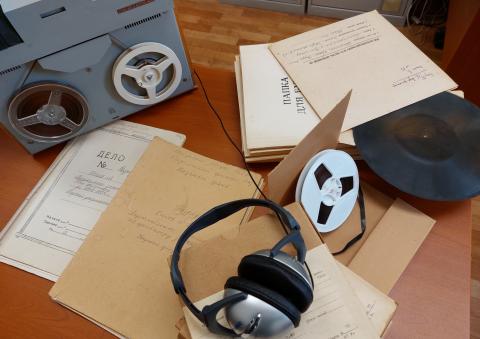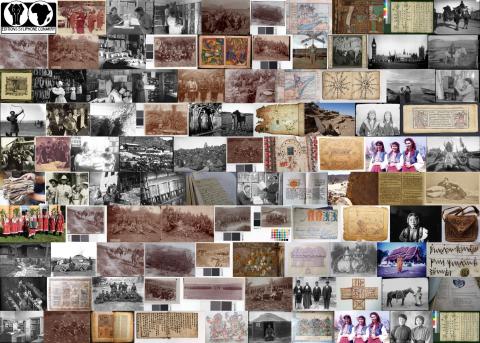Aims and objectives
The Republic of Moldova is a former Soviet Union country in transition to democracy and a market economy. Moldova is inhabited with many ethnic minority communities such as Ukrainians, Russian Old Believers, Gagauzi, Bulgarians, Jews, Roma, and others. The Roma are most neglected in academia, museum and archival work, and there is an absence of local historiographical sources and ethnographic research undertaken in the field.
During the Soviet period, Moldova was considered a country where the majority of Roma lived, and where they settled from other republics. The Roma community in Moldova had lived under typical conditions of a pre-industrial period and to a large part still live this way. During the Soviet Union period, the government had made attempts to modernise their lives: their nomadic way of life was prohibited, and compulsory education and obligatory employment were introduced. Some Roma representatives have dedicated their life to the development of their people, there were writers, painters, artists, and others, who strived for modernisation and emancipation of their communities.
Over the past few years, researchers from the "Roma Ethnology" working group, in the Ethnic Minorities Department of the Institute of Cultural Heritage, undertook a series of field trips to Roma, locating 11 ethnographic Romani groups in Moldova, each with its specific pre-modern culture. The best known of these are: Layesh (ex-nomads Roma group), Lautari (Roma musicians), Lingurari (Roma spoon makers), Chokanary (Roma blacksmiths), Churary (Roma sieve makers), Curteni (Roma servants to local nobles courts in past). During these field research trips among the Roma community from Moldova the researchers became aware of the existence of valuable materials, kept in a state of neglect.
Most of these sources (photographs, documents, manuscripts) are kept in family archives. They are endangered for a variety of reasons: when the owners of personal archives die, their descendants are not interested in preserving them, and there is little funding within the country for collecting and archiving them. These archives are gradually disappearing.
The core mission of this pilot project will be focused on locating, organising and digitising Romani heritage in Moldova: photographic materials, manuscripts, periodicals, posters, various certificates of participation in socio-cultural events, individual employment contracts.
The project will discover collections of the Romani archive material, connected with the community and cultural activity of the Roma in the Republic of Moldova from the 1940s and earlier. Where possible, they will be relocated to the archive of the Institute of Cultural Heritage of the Academy of Sciences of Moldova, and the National Archives of the Republic of Moldova. Material from the family archives of well-known Roma personalities from the past will be collected, but also materials from ordinary Roma families.
It is expected to find manuscripts of family history or memoirs and Romani written artistic literature, photographs, old descriptions of customs, old songs, Romani legends and oral histories, posters, different kinds of administrative documents of central and local authorities, towns and village chronicles regarding Roma public policies, individual employment contracts from the pre-industrial period, and certificates of participation in socio-cultural events.
If efforts are not made to save these materials, the Roma community in Moldova is likely to lose this unique ethnographic heritage. Digital copies of the material will be deposited with the National Archives of the Republic of Moldova and the British Library - this will make it possible for academics from the field of Romani studies and for scholars interested in Southeast European studies to access them and will also be very important for the empowerment of Roma communities. As a result a unique archival collection on the Roma community in Moldova will come into being.
Outcomes
During the project the team were able to discover and digitise material from the families of some well-known Roma personalities from the past, as well as material from ordinary Roma families. The digitised material is now publicly available in the Moldovan National Archive as well as the British Library, and are an important source of information for Romani studies. The project digitised 2557 images from 36 individual collections dating from between 1925-2013.
Digitised materials were discovered and collected from 16 localities from the Republic of Moldova: the city Chisinau, the city Balti, Hincesti city district, Singerei city district, Soroca city district, Floresti city district, Riscani city district, Tvardita city (Taraclia district), the village Chetrosu (Drochia district), the village Gribova (Drochia district), the village Ciocilteni (Orhei district), the Ghetlova (Orhei district), the village Sireti (Straseni district), the village Danu (Glodeni district), the village Baraboi (Donduseni district), the village Carpineni (Hincesti district).




